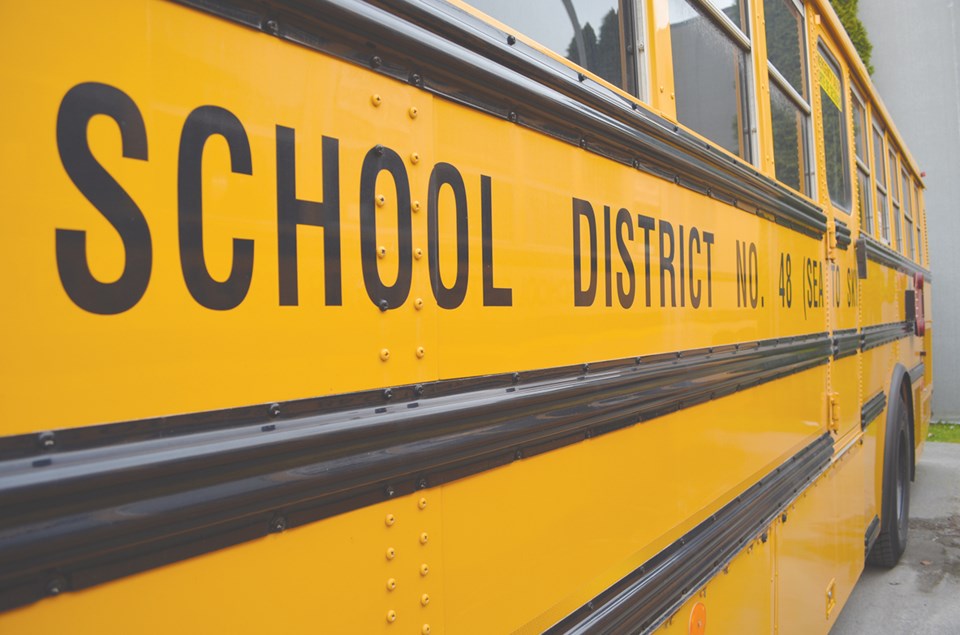Field trips to the United States will be resuming for the Sea to Sky School District after the school board decided earlier this year to put them on hold due to fear of discrimination at the border.
The change is, in part, the result of a suggestion by the BC School Trustees Association.
After U.S. President Donald Trump’s travel ban against people from Somalia, Yemen, Sudan, Libya, Syria and Iran went into effect in March, the association asked lawyers for recommendations on how to deal with student travel.
It was found that B.C. residents can be vetted before crossing the U.S. border.
“We could have [students] go through a pre-clearance,” said assistant Supt. Jody Langlois. “I’m not saying this would mitigate all of that but it would certainly reduce the risk.”
Students could have their papers checked before going on a field trip. Therefore, schools will be able to know if a student will be rejected at the border ahead of time.
Should a student fail preclearance, the trip would be cancelled before anyone reaches the border.
School board chair Rick Price said he was concerned this could still stigmatize any students who were rejected, especially if it was revealed a trip was cancelled because they failed preclearance.
“If it became known, ‘Oh, now we can’t go because so-and-so was on the list’... that could be a very nasty experience for a child and a family,” he said.
Langlois replied that this process would be done discreetly.
In any cases where a student fails the preclearance, only school staff would know who was rejected and no reason would be given for the trip’s cancellation, she said.
“Field trips get cancelled for whatever reason and not everyone knows why,” Langlois added.
Prior to stopping the trips to the U.S., the school district had scheduled a field trip to Hawaii this past April. It was permitted because it was too late to put the brakes on it.
Earlier this year, the school board voted in favour of stopping all field trips to America after numerous media reports documented people being turned away from crossing into the United States, presumably because of their ethnic background or religion.
Many believed that borders have become harder to cross because of Trump’s hardline anti-immigration rhetoric.
As of now, it still remains unclear if border rejections are increasing – many accounts are anecdotal and the statistics that have been reported appear to have conflicting messages.
The Globe and Mail reported U.S. border agents turned away 27,772 people trying to enter the United States from the Canadian border last year, an increase of 6.7 per cent.
This has happened, the newspaper said, despite the fact that less people were trying to travel to the U.S. – trips down south had fallen by nine per cent that same year. Statistically, this still represents a small percentage of overall trips – those rejections made up less than .085 per cent of the 33 million cross-border passages made by Canadians in 2016.
However, The Canadian Press said rejections of Canadian travellers at American land crossings dropped by 8.5 per cent. That conclusion was made after comparing the period between October and the end of February with the same time period a year earlier.
The difference could be the result of using different data sources, as well as the different time frames that were examined. The Globe and Mail findings were the result of compiling numbers from “agencies in Canada and the United States,” while The Canadian Press drew its figures from U.S. government statistics.



